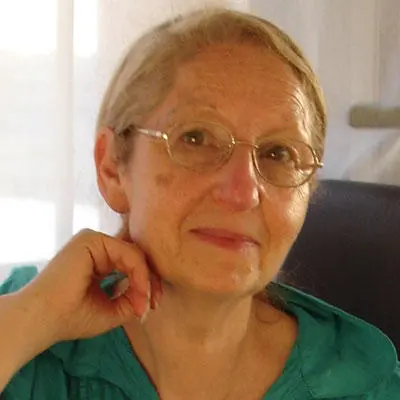- Home
- Staff profiles
- Academic
- Nicola Foster
Dr Nicola Foster
PhD, FHEA
Senior Research Fellow (Visual Arts)
School of Creative Industries

Biography
Nicola joined Solent in August 2017 to develop the PhD programme in Visual Arts, including practice-based research. Coming from an academic background in art practice (Goldsmiths College), Continental philosophy and art history (Essex University), Nicola became actively involved in the debate that led to the establishment of 'practice-based' research in the UK. This led to her early engagement with practice-based supervision and examination of PhD research projects. She taught visual arts and supervised research students at the University of the Arts London, Cardiff University, Arts University Bournemouth, Arts University Norwich, the Open University and the University of Suffolk.
Nicola was a member of the AHRC College Peer Review (2007-2017) and invited to sit on Panel B meetings. She still serves on the AHRC when required. She served as a trustee of the Association for Art History (2011-2017). She was a member of the Editorial Board of Women's Philosophy Review (1998-2004) and the Editorial Board of the European Journal of Artistic Research (2011-2016).
Fellowships
Visiting Fellow (research) at the University of Bournemouth
Honorary Associate (history of art) The Open University
PhD supervision
Nicola currently supervises PhD students in the following topics:
- 'Contemporary art interventions in/with/at Natural History Museums'
- 'Changing perceptions of east Asian art: the history of curatorial practices in private and public museums'
- Walking with Benjamin and Freud in Japan
- Irish input in the construction of Japanese culture
- Visualising illness
- Art and the internet
- Citizenship and the representation of cultural identity at moments of crisis
- Princes and witch in the woods: a contemporary look at fairy tales and the construction of gendered norms on social media
- Contemporary curatorial practices
- The Sharjah Biennials
- The use, subversion and failures of data
- The other story of colonialism: vernacular narratives in the Philippines and Mexico
Previous theses included:
- Disobedient Daughters: Anna Aitkins cyanotypes
- 'The State Corporate Military Complex: It's Representation, Visualisation and Constitutive Subjectivation' – the politics and ethics of war photography and representations of violence
- 'The Home I carry with me: Mapping the Home through drawing practices'
- 'Drawing and Becoming Otherwise: The Archaeology of Linear Practice'
- 'drawing/writing (an) autobiography: uncovering/covering women's space with nushu
Nicola welcomes inquiries from prospective students in visual arts (practice-based, text based or other approaches to visual art and culture, art institutions, the art market, exhibitions and curatorial practices.
Further information
Nicola's current work focuses on four key general questions in visual art and culture:
- How visual art practices (understood very broadly to include all arts formats in the context of various cultural institutions) question perceptions of the cultural, social, political, and natural world and introduce different perspectives which allow the re-thinking and re-interpretation of concepts.
- The role of visual works, curatorial practices, art institutions (museums, galleries, public and private cultural institutions, public and private funding institutions, the art market) and their publics in the construction of value, in the context of gender, race, cultural identity, globalisation and post/de-colonial debate.
- What changes (social, cultural, political) have been introduced by the digital/virtual world so far and what opportunities and dangers might it open, or close, for art practices, museums and curatorial practices, as well as the construction of publics and thus also value
- The role of socially constructed emotions in the production of art, curatorial practices, exhibitions, art institutions, and publics and how such processes translate into constructions of value.




